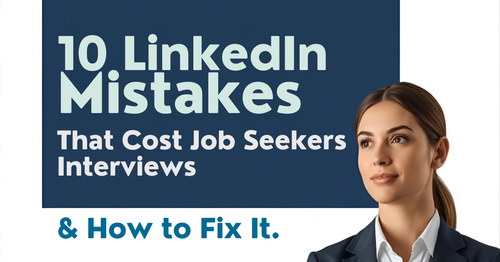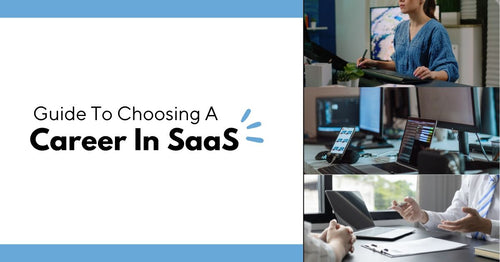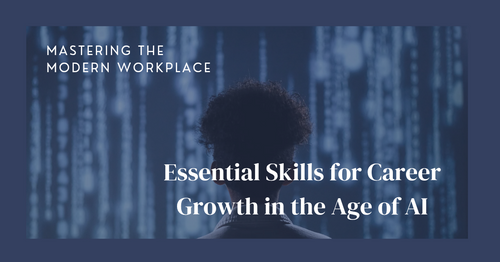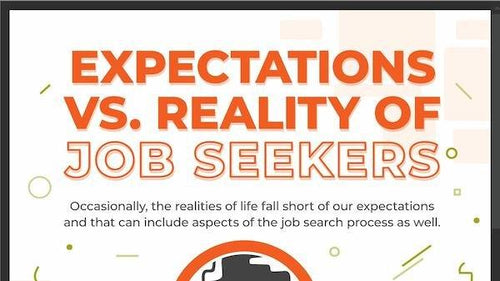
8 Tips for Fresh College Graduates To Land Their First Corporate Job
After spending four years at college earning your degree, thinking about landing your first corporate job can be stressful. What should you wear to an interview? What should your resume look like? Where should you even look for a job?
Luckily, we have compiled a list of top tips for fresh college graduates to help land their first corporate job.

This blog contains affiliate links, meaning I may receive a small commission (at no cost to you) if you subscribe or buy something through the links I share. I only share links to products or services that I use myself or absolutely love!
1 | Start Networking Early
No matter what industry you are in, it never hurts to know people. One of the easiest ways to get your foot in the door at a company is to have connections. So, you should start networking with people in your industry as soon as possible.
Ideally, you’ll start this process in college. Your professors are likely industry professionals with a large network of connections; This can be a great place to start. Ask them about any internships or job openings they may know of. Additionally, you should make an effort to connect with your peers and guest speakers that visit your college campus. You can build your network of professional connections on LinkedIn, which is a great platform to post job updates, keep up with industry news, and even apply for jobs.
2 | Tailor Your Resume
In the corporate world, your resume is one of the most important parts of your job application. It is a great place to showcase your relevant experience, discuss your certifications, and outline both soft and hard skills.
To effectively present a hiring manager with your qualifications for a role, you should aim to tailor your resume for specific job applications. A basic resume is not going to fill the mold for every job you apply for; It should be customized to highlight key elements of the job description. This will present the most relevant and important information to hiring managers and recruiters.
3 | Search a Variety of Job Boards
Most companies will be sourcing their candidates from a variety of places – not just one. When you start applying for jobs, it is important to search a variety of job boards for open positions to expand your search. A lot of organizations will also use HR recruitment software to automate certain parts of their hiring process, meaning they are cross-posting on multiple job boards at the same time.
Additionally, you may also find it helpful to look for open positions on non-traditional platforms, like social media. Many smaller brands and companies are using alternative ways to find new talent. Be sure to stay up to date with local companies on social media and keep an eye out for non-traditional corporate job postings.
4 | Write Personalized Cover Letters
Just as with resumes, recruiters and hiring managers see dozens of cover letters for every open position at their company. So, you want to avoid reusing the same cover letter for every job application you fill out. While this can take up a lot of time, generic cover letters do not do a great job of showcasing your fit at a specific company.
With your cover letter, you want to make sure you stand out from the crowd. Talk about what makes you a great fit for their company and what makes you the best candidate for the role. After all, this is your opportunity to make a good impression and secure an interview.
5 | Proofread Your Job Applications
The biggest mistake you can make when applying for a job is leaving silly spelling and grammar errors on your application. Oftentimes, this is an immediate turn-off for hiring managers and recruiters. It shows that you did not take the time to review your application before submitting it and will often mean that you are no longer in consideration for the position.
So, before hitting “Submit” on a job application, read over the information a few times to check for any spelling or grammatical errors. Be sure to do so with your resume and cover letter as well.
6 | Know Your Industry
Every industry has its own quirks. Before starting your job search, it is important for you to have a basic understanding of what your ideal industry looks like. What are the day-to-day tasks at hand? Is there any lingo you should know? What will the recruiters and hiring managers be looking for on your application and in your interview?
You can get to know the in’s and out’s of your industry by talking to your network of connections. Talk to your professors, peers, and other industry professionals so you know what to expect out of the hiring process.
7 | Prepare For Your Interviews
Though they may not seem like it, job interviews should be a two-way conversation. So, you don’t want to go into an interview without preparing ahead of time. Start thinking about potential answers to common interview questions and prepare questions to ask your interviewer ahead of time. Additionally, do some research on who the company is and what its culture is like.
Showing a recruiter that you are prepared for the interview comes across as both organized and professional. It also shows them just how much you care about the position you are interviewing for and that you are excited about the opportunity.
8 | Make A Good First Impression
In the corporate job market, first impressions are everything. This is something to keep in mind throughout the application process – from the time you create your resume to the interview. You always want to make a good first impression on your recruiters, hiring managers, and interviewers.
Luckily, these tips will help you create a lasting first impression and land your first job in the corporate world after college.
Final Thoughts on Getting Your First Job Out of College
We know how stressful it can be to find your first job after college, but there are definitely some things you can do to make the process easier. But, if you are prepared to work hard and follow some of these top tips, you are going to set yourself up for success in the corporate world.
Related Articles
-

10 LinkedIn Mistakes That Cost Job Seekers Interviews (How to Fix It)
Guest blogger outlines how to avoid these LinkedIn mistakes to drastically improve your chances of being noticed, whether you’re actively job hunting or just trying to grow your professional presence.
-

Guide To Choosing A Career In SaaS
Thinking about a career in SaaS? Guest blogger Jacob Wickett shares top roles, key skills, and how to break into this fast-growing industry.
-

Mastering the Modern Workplace: Essential Skills for Career Growth in the Age of AI
Guest blogger Sadie Smith shares a comprehensive guide to help professionals navigate unprecedented changes driven by technological advancement with confidence.
-

Navigating Your Career Path with a Family Nurse Practitioner Degree Program
Guest blogger Sadie Smith reveals how strategic planning in your healthcare career broadens your impact on patient care and community health.
-

Career Transitions: Navigating Your Path to Success in Healthcare and Beyond
Guest blogger Sadie Smith shares how to leverage your existing skills and experience while pursuing new career opportunities in healthcare and other industries.
-

Breaking Barriers: A Guide to Empowering Women in Manufacturing Leadership
Guest contributor Sadie Smith shares this comprehensive guide on how women can reshape the manufacturing industry landscape with actionable insights.
-

Navigating An Evolving Job Market With Strategies For Success
To thrive in a dynamic job market, you need to continuously adapt your job search strategies. Stay informed and flexible to position yourself for success.
-

The Best Resume Tips for Recent Law School Graduates
Guest contributor Luke Bell shares practical resume tips to help recent law school graduates make a lasting impression on potential employers.
-

4 Personal Assistant Interview Questions and Answers
Guest blogger Liza Griffen, co-founder of Tyler Griffen, equips you with a deep understanding of typical interview questions and practical answers to help you showcase your skills effectively whether you're aiming to impress in your first personal assistant role or looking to step up in your career.
-

Crack Your Dream Company Interview
Guest contributor Nandkishore Rathi shares practical tips, strategies, and insightful advice from career experts to help you shine during written and verbal interviews.
-

Exploring The Realities Of Job Hunting (Infographic)
Guest contributor Joseph Matalone delves into common expectations in job seeking and the contrasting realities.
-

Don't Panic: 15 Ways To Prepare For A Video Interview
Guest blogger Daniel Boyce with Aware Recruiter delves into 15 actionable steps to prepare you for a stellar video interview experience whether you're a seasoned professional or just stepping into the job market.
-

5 Signs That A Company Values Employee Wellness And Safety
Guest blogger Sharon Feldman shares how asking questions about wellness and safety in your interview could give you insight into a company’s values.
-

Can An Employer Fire You For Being Sick?
Many employers can terminate an employee for falling sick frequently. Guest blogger Natalie Padilla shares all you need to know regarding being fired by an employer.
-

Tips On Building A Positive And Supportive Workplace
Guest blogger Adam Blacksmith shares how to embrace communication, celebrate diversity, and empower your team for success by fostering a positive and supportive workplace culture.
-

AI: Transforming Networking, Interviews, and Careers
Guest Author, Dean Fankhauiser. discusses how AI is revolutionizing networking, interviewing, career planning, and professional advancement.
-

Preparing for Different Interview Formats: Phone, Video, and In-Person
Interview Coach Ellie Hoekman shares specific preparation steps for phone, video, and in-person interviews.
-

Negotiating A Competitive Salary
Guest blogger Rohan Singh shares strategies for negotiating a fair salary that reflects your worth and fulfills your goals.
-

Can My Employer Ask Why I’m Taking A Sick Day?
Guest blogger Samantha Larson shares whether your employer has the right to ask you why you are sick and how much information they are entitled to when you take a sick day at work.
-

The Benefits of Coaching in the Workplace
Guest blogger, William Powell, shares some of the concrete examples of the benefits associated with employee coaching.
-

10 Facts & Stats About Sexual Harassment in the Workplace
Guest blogger Sharon Feldman shares how many people experience harassment every day, including at their place of work, to increase awareness.
-

The Ultimate Temping Guide for Beginners
Guest blogger Auria Heanley with Oriel Partners shares insight into what a temp job is and what to expect in order to make the most of a new job opportunity.
-

High Paying Career Paths After Learning Python
Guest blogger Rose Young with Codebasics.io shares some of the promising career paths you can explore after learning Python programming.
-

How To Ace Your Interview With A Staffing Agency
Guest blogger William Powell shares how to prepare adequately for an interview with a recruiting agency to increase your chances of landing your dream job.
-

How Do You Know When It's Time To Quit Your Job?
Guest blogger Katie Meyers shares when quitting your job is the right thing and how to go about it.
-

5 Things You Need To Know About Job Interviews To Succeed
Guest blogger Marcus Ralph shares 5 tips on what you can do before a job interview to be best prepared to make a solid first impression and land the job.



























